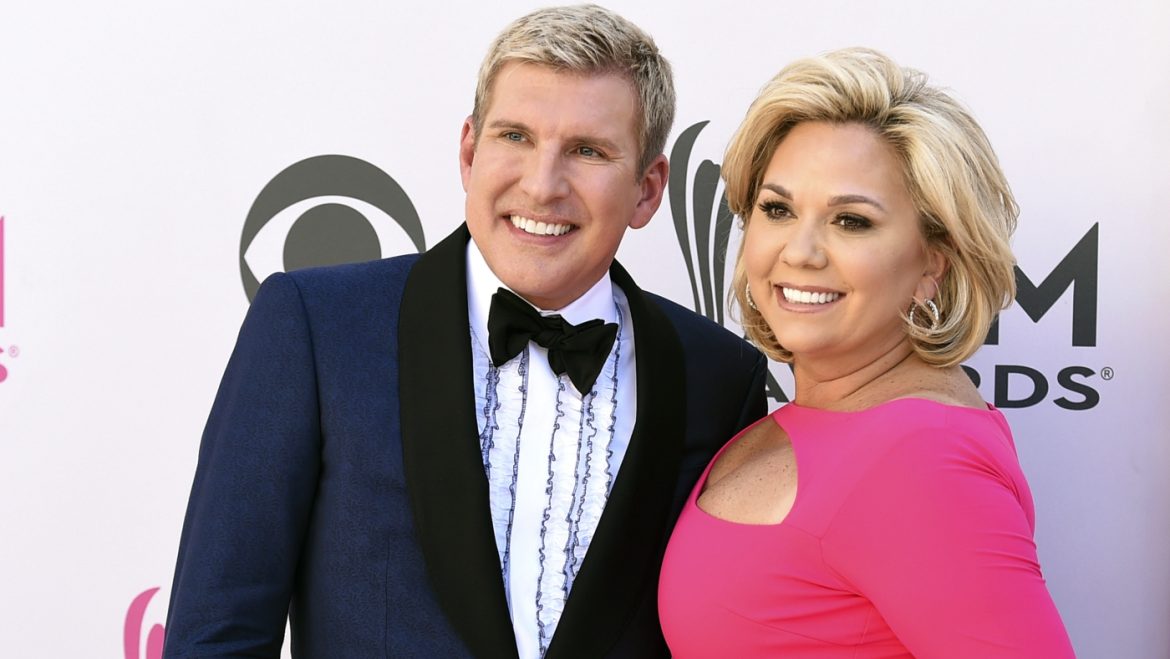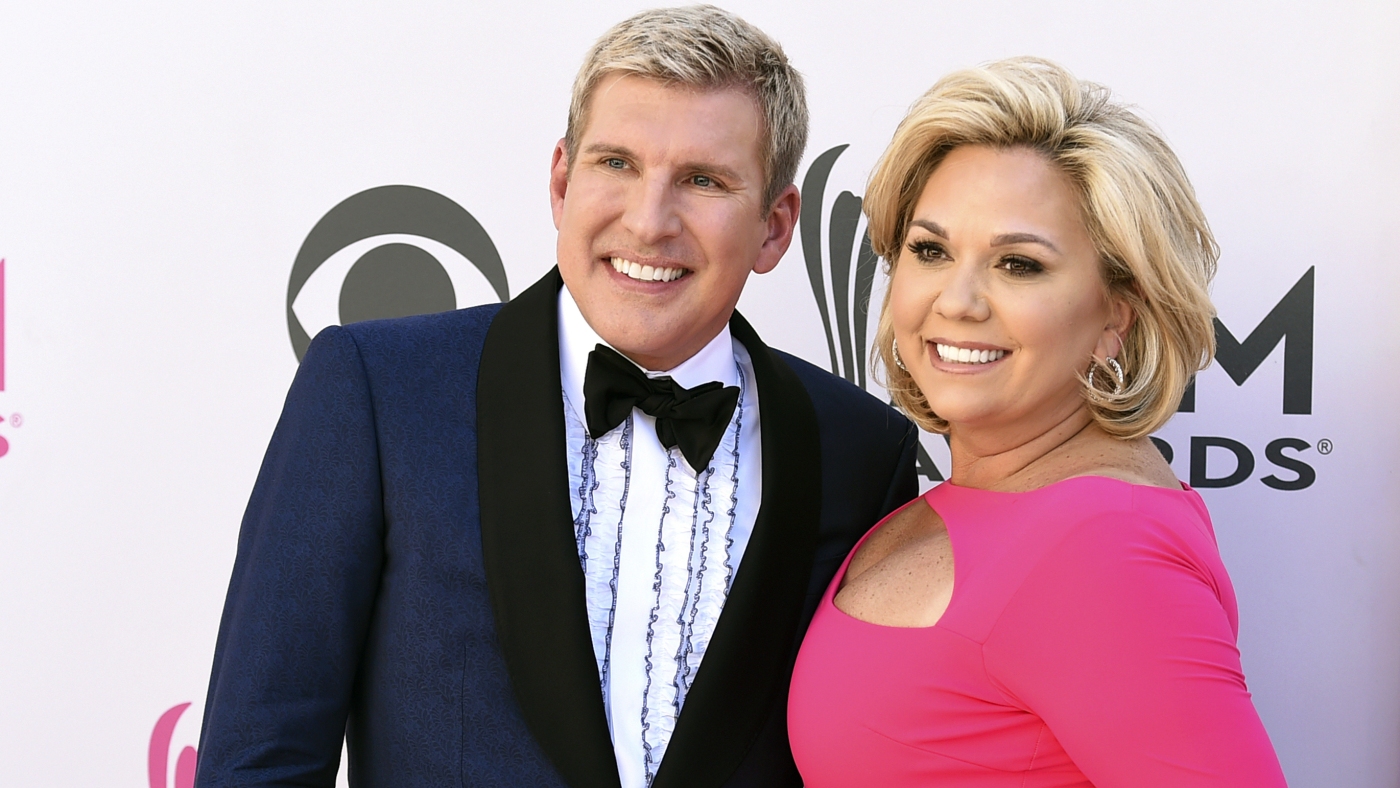The recent pardoning of Todd and Julie Chrisley by former President Donald Trump adds another high-profile chapter to the ongoing narrative of presidential clemency involving reality TV personalities convicted of serious financial crimes. Todd and Julie Chrisley, known for starring in the long-running USA Network reality series “Chrisley Knows Best,” were found guilty in 2022 of multiple counts including bank fraud and tax evasion, with sentences of 12 years for Todd and 7 years for Julie. This report explores the complex facets of their conviction, the pardon announcement, and the broader implications of such presidential interventions.
Background: The Chrisleys’ Legal Troubles and Public Persona
Todd and Julie Chrisley gained fame by showcasing an affluent, tightly-knit Southern family lifestyle, replete with extravagance and faith-centered values. Their television show ran for ten seasons, culminating in widespread public recognition. However, behind the reality TV glamour, prosecutors uncovered a financial scheme amounting to over $30 million in fraud against banks, alongside tax evasion and other financial misdeeds. The case involved not only the couple but also their accountant, Peter Tarantino, who was sentenced to prison for conspiracy to defraud the IRS and filing false tax documents.
The Conviction and Sentencing
In 2022, a jury convicted the Chrisleys on eight counts of financial fraud and two counts of tax evasion. Additionally, Julie Chrisley faced charges including wire fraud and obstruction of justice. The court handed down substantial prison sentences: Todd Chrisley received 12 years, while Julie was sentenced to 7. The severity of these punishments served as a public rebuke of their actions, signaling the judiciary’s intent to hold public figures accountable for white-collar crimes.
The Pardon Process and Announcement
The move to pardon Todd and Julie Chrisley originated at their behest, with the couple seeking clemency as early as February. The pivotal moment arrived when President Trump announced, through an emotional phone call with their daughter Savannah Chrisley—herself a conservative influencer and RNC speaker—that he would grant full pardons to the couple. This call, widely publicized via social media and news outlets, underscored a personal and political element in the clemency decision.
Reports indicated that Trump viewed the Chrisleys’ sentences as “far too harsh,” and he emphasized the perceived redeeming qualities of their family narrative and public persona. The White House corroborated these pardons immediately following the announcement, with Trump’s administration heralding this act as another example of the President’s willingness to grant forgiveness to individuals connected to his broader social and political circles.
The Role of Political and Social Influence
The Chrisleys’ case highlights the intersection of celebrity, politics, and justice in the United States. With Savannah Chrisley actively engaged in political discourse and aligned visibly with Trump’s conservative base, the pardon can be viewed in the context of rewarding or supporting loyal constituents. This aligns with a pattern seen during Trump’s presidency, wherein pardons frequently followed political allegiance or personal connections.
Such interventions often provoke a spectrum of public reactions, from questions about the fairness and equity of the justice system to debates on the appropriate bounds of presidential clemency. The pardoning of high-profile figures like the Chrisleys fuels ongoing discourse on whether fame and political ties unduly influence legal outcomes.
Broader Implications of the Pardons
This case reinforces the complexity of presidential pardons in the American legal and political ecosystems. On one hand, pardons serve as a constitutional tool for mercy and correction of judicial excesses or miscarriages of justice. On the other, when used in cases involving financial crimes and public figures, they invite scrutiny regarding ethics and potential favoritism.
The Chrisley pardons also illuminate issues around white-collar crime prosecutions—particularly how sentences are determined and perceived to align with societal notions of justice and deterrence. Critics argue that leniency for affluent individuals undercuts public trust, while proponents might contend that public rehabilitation and family unity are valid considerations.
Conclusion: Navigating Justice, Celebrity, and Clemency
The pardoning of Todd and Julie Chrisley encapsulates the multifaceted tensions between celebrity culture, legal accountability, and political power. While their convictions were grounded in substantial evidence of financial fraud and tax evasion, the intervention by President Trump serves as a reminder of how political influence and public image can shape legal trajectories.
As these pardons free the Chrisleys from prison, the broader conversation continues: How should justice balance accountability with mercy, especially when fame and politics intertwine? Their case invites ongoing scrutiny and dialogue about fairness, the role of the presidency in justice, and the social implications of celebrity pardons in America’s legal landscape.


